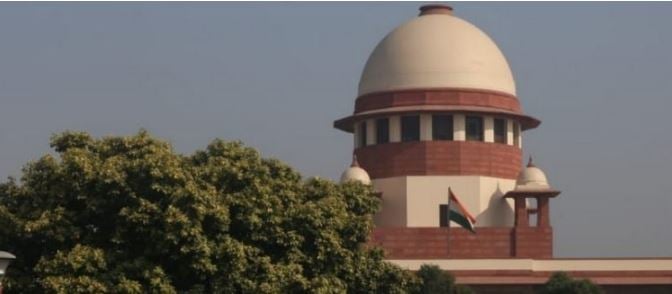The Supreme Court issued notice on a plea seeking a direction to the Centre to appoint the chairperson and members of the Law Commission of India within one month and make it a statutory body.
The bench of Chief Justice S.A. Bobde, Justices A.S. Bopanna and V. Ramasubramanian heard the petition filed by Advocate Ashwini Kumar Upadhyay, who submitted that the cause of action accrued on August 31, 2018, and continued, when the tenure of twenty-first Law Commission came to an end the Centre neither extended the tenure of its Chairperson and Members nor notified Twenty-Second Law Commission.
Further though on 19.2.2020, the Centre approved the constitution of Twenty-Second Law Commission but it has not appointed the Chairperson and Members till date, said the petitioner.
Highlighting the importance of the Law Commission, the petitioner has submitted,
“Injury to the public is extremely large as the Law Commission of India is headless since 1.9.2018 hence unable to examine public issues. Even the directions of the Constitutional Courts to Law Commission have become dead letters.”
Moreover, since the Law Commission has not worked since 1.9.2018, the Centre does not have the benefit of recommendations from this specialized body on the different aspects of law, which are entrusted to the Commission for its study and recommendations.
The petitioner has further pointed out the role of the Law Commission and submitted,
“The Commission, on a reference made to it by the Centre, Apex Court and High Courts, undertakes research in law and reviews existing laws for making reforms therein and enacting new legislations. It also undertakes studies and research for bringing reforms in justice delivery systems for elimination of delay in procedures, speedy disposal of cases, reduction in cost of litigation etc. The Law Commission of India not only identifies laws which are no longer needed or relevant and can be immediately repealed but also examine the existing laws in the light of Directive Principles of State Policy and suggest the ways of improvement and reform. The Commission also suggests such legislations as might be necessary to implement Directive Principles and to attain the objectives set out in Preamble of the Constitution.”
Further, the Law Commission of India considers and conveys to the Centre, Apex Court and High Courts, its views on any subject relating to law and judicial administration that is referred to it and also considers the requests for providing research to foreign countries. It takes all measures as may be necessary to harness law and the legal process in the service of the poor and revise Central Acts of general importance so as to simplify them and remove anomalies, ambiguities and the inequities. The Law Commission has been able to make important contributions towards the progressive development and codification of Law of the country and it has so far submitted 277 reports.
Also Read: Nepal PM KP Sharma Oli expelled from ruling Nepal Communist Party amid political chaos
The petitioner has further stated that it is not merely the right of an individual to move the Supreme Court, but also responsibility of the Court to enforce fundamental rights. Therefore, if the petitioner satisfies the Supreme Court that his fundamental right has been violated, it is not only the ‘right’ and ‘power’, but the ‘duty’ and ‘obligation’ of the Court to ensure that the petitioner’s fundamental right is protected and safeguarded.


